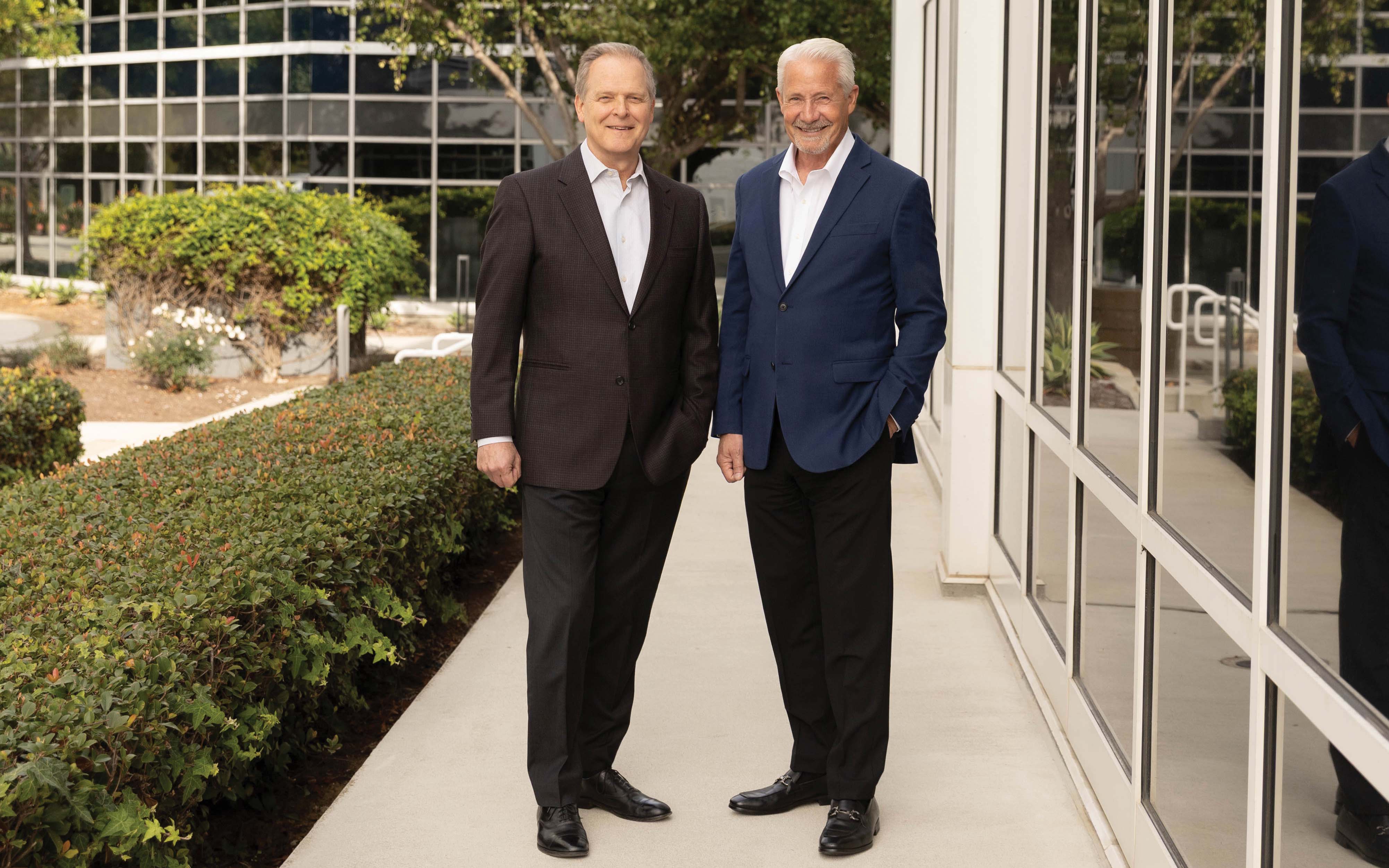Partnering with one or more fintechs can help community banks keep up with the unrelenting pace of technological development. Community bankers and other experts give us their tips for finding the right fit.
How to Successfully Negotiate a Fintech Partnership
November 28, 2023 / By Judith Sears
Partnering with one or more fintechs can help community banks keep up with the unrelenting pace of technological development. Community bankers and other experts give us their tips for finding the right fit.
Fintech partnerships have gained a solid foothold in community banks, with many bankers pleased with the increased efficiency and customer-facing capabilities they provide.
“The fintech partnerships we’re working with are helping us be more efficient or provide solutions that benefit customers that we can’t currently offer,” says Bob Fisher, president and CEO of $550 million-asset Tioga State Bank in Spencer, N.Y., and past ICBA chairman.
While bankers see benefits, they also acknowledge that these partnerships can pose risks for community banks. Combining an entrepreneurial mindset that’s tuned to “bleeding edge” technology with the stringent compliance obligations of the banking industry isn’t always an easy fit.
“Fintechs operate on an open mindset of providing solutions,” Fisher explains. “They don’t think about the due diligence that banks have to go through.”
Fintechs that provide operational and/or customer-oriented solutions where the bank “owns” the customer and BaaS partnerships can vary in their understanding of banking. Startup fintechs are more likely to lack an appreciation of the regulatory environment.
“The greener the fintech is, the less likely they are to understand regulatory requirements,” says Amy Foulks, EVP, COO of $700 million‑asset First Utah Bank in Salt Lake City, Utah. However, more established fintechs, or fintechs that focus on products targeted at the banking industry, generally do have a good understanding of the requirements of banking.
“A fintech that offers a BSA/AML service will understand regulatory requirements,” Foulks notes.
Even so, having “book knowledge” isn’t the same as firsthand experience. “They [typically] haven’t sat through a regulatory exam or worked through an MRA through the oversight of the OCC,” emphasizes David Robinson, director of fintech partnerships for Dickinson Financial Corporation, which owns $2.5 billion-asset Academy Bank in Kansas City, Mo., and $1.3 billion-asset Armed Forces Bank in Fort Leavenworth, Kan. “That’s a very different thing from knowing banking.”
“[The ThinkTECH Accelerator’s] a robust ecosystem of subject matter experts that can help assess potential partners.”—Charles Potts, ICBA
Keeping Fintechs Compliant
As bank technology gains greater capabilities, it creates more complex compliance issues. For example, AI introduces incredible efficiency, but it may also introduce unfair bias in decisions.
“It’s a big concern,” says Charles Potts, executive vice president and chief innovation officer of ICBA. “The consistency and accuracy of data that’s analyzed has to be thought about, especially if you’re going to be using these types of tools to calculate risk or credit decisions.”
In the end, whatever the technology being used, humans must exercise oversight of the tools, and that’s where agencies will hold banks accountable.
“You can’t have a black box process,” Potts explains. “There needs to be transparency in how the technology helps make decisions. You have to explain to everybody, including the customer and the regulatory agencies, how you arrived at your decisions. Models that are put around AI tools have to be explainable.”
He urges community banks to keep regulators abreast of their plans. “It’s considered a best practice that as a community bank is developing or rolling out a new technology, [it should] keep the principal regulatory agencies informed of what it’s doing,” says Potts. “That’s especially true where these initiatives may have some customer or market-facing aspect to them.”
Foulks has found that regulators can provide a good sounding board to banks considering fintech partnerships. “Regulators are happy to talk to you outside of your exam cycle,” she says. “You can get their input on a fintech partner.”
She adds that the FDIC’s SR 13-19 letter, “Guidance on managing outsourcing risk,” published in August 2021, provides a good basic framework for banks’ responsibilities regarding third-party vendors.
Building Trust in Fintech
ICBA’s ThinkTECH Accelerator has taken the lead in educating potential fintech partners. While participating in the program, fintech representatives meet with regulatory agencies that provide feedback on potential compliance issues of their solution. In addition to vetting fintech startups with regulatory feedback, the accelerator brings in accounting firms, law firms and compliance specialists to provide collaborative feedback to the fintechs. “That’s a robust ecosystem of subject matter experts that can help assess potential partners,” Potts says.
Given that banks bear ultimate responsibility for their customers’ data, it’s imperative that executives conduct thorough investigations of potential partners. Foulks says First Utah scrutinizes potential fintech partners as carefully as it does its own departments.
“That vendor may just be selling us a piece of software and customer support,” she says. “They aren’t owning the customers and may be expecting us to run things on the back end. For that reason, you need to understand this as well as if you created them yourself.”
Foulks stresses that banks should know where the data lives at a fintech’s location and who has access to it. “All of those confidential data issues are front and center,” she says, adding that banks must insist on the access they need to meet compliance obligations.
“Whatever the product is,” she says, “do they have the mechanisms built in to keep us compliant, to be able to make the right disclosures at the right time and do we have the ability to utilize the data in the way we need to, to stay compliant?”

Bankers frequently seek recommendations from other bankers as to trustworthy and effective fintechs. Andrew Tinberg, president and CEO of $1.6 billion-asset CNB Bank & Trust in Oak Forest, Ill., advises bankers to ask specifically how another bank is using a particular technology and how it’s measuring the results. “They may be measuring success differently than we would,” he observes.
In forming fintech partnerships, banks must be proactive in educating their partners on what an exam requires. “When we go through a regulatory exam or an external audit, the first thing the examiners are looking at is did we follow the Federal Financial Institutions Examination Council [FFIEC] handbook,” says Jennifer Moraczewski, SVP operations and technology for Tioga State Bank. “We have an extensive checklist based on that, and we share that with potential vendors.”
“Whether you’re striving for operational excellence or to take the customer experience to the next level, innovation is the bank’s pathway to long‑term success.”—Andrew Tinberg, CNB Bank & Trust
Sweat the Small Stuff
Even with a carefully vetted partner, banks need to put in place detailed contractual requirements (see sidebar). Moraczewski says that Tioga State Bank sets expectations of a lengthy contract review with potential vendors. “We make sure that both parties are covered,” she says.
Dickinson Financial Corporation’s Robinson advises bankers to include KPIs and review periods across milestones in the contract. “If we made assumptions about the growth of the relationship, and after two years we didn’t get where we thought we would, it’s important to review and agree to make changes or exit,” he says.
Despite the complications, more community banks are reporting substantial benefits from their fintech partnerships. Robinson reports that Academy Bank has experienced significant operational efficiencies through various digital initiatives over the past few years.
“We are saving thousands of hours a year in our [operational groups], and we are finding manual processes in the organization that can be automated,” he says. “That allows organizational teams to be redeployed to work on new products and innovation.”
Based on CNB’s experience, Tinberg is a strong advocate of fintech partnerships. “Whether you’re striving for operational excellence or to take the customer experience to the next level, innovation is the bank’s pathway to long-term success,” he says. “CNB is all about maximizing the customer experience. We’re super-optimistic about the future of community banks, and I think fintechs are really important to the future of community banks.”
Drafting a watertight contract
If your community bank has found a fintech it would like to partner with, it’s time to establish a contract. Good contracts will be detailed, but three fundamental elements emerge:
Protection of and access to customer data
Performance criteria
An exit strategy
“Never give up the rights to the customers’ data,” advises Andrew Tinberg, president of CNB Bank & Trust in Oak Forest, Ill. “It’s always ours. Make sure there is a secure way to exit the partnership, that the data will be returned to us and no remnants of that data remain somewhere else.”
He adds that CNB requires partners to be Systems and Organization Controls 2 (SOC 2) certified, a framework created by the American Institute of Certified Public Accountants (AICPA) to cover how companies should handle customer data that’s stored in the cloud.
Subscribe now
Sign up for the Independent Banker newsletter to receive twice-monthly emails about new issues and must-read content you might have missed.
Sponsored Content
Featured Webinars
Join ICBA Community
Interested in discussing this and other topics? Network with and learn from your peers with the app designed for community bankers.
Subscribe Today
Sign up for Independent Banker eNews to receive twice-monthly emails that alert you when a new issue drops and highlight must-read content you might have missed.
News Watch Today

Join the Conversation with ICBA Community
ICBA Community is an online platform led by community bankers to foster connections, collaborations, and discussions on industry news, best practices, and regulations, while promoting networking, mentorship, and member feedback to guide future initiatives.












